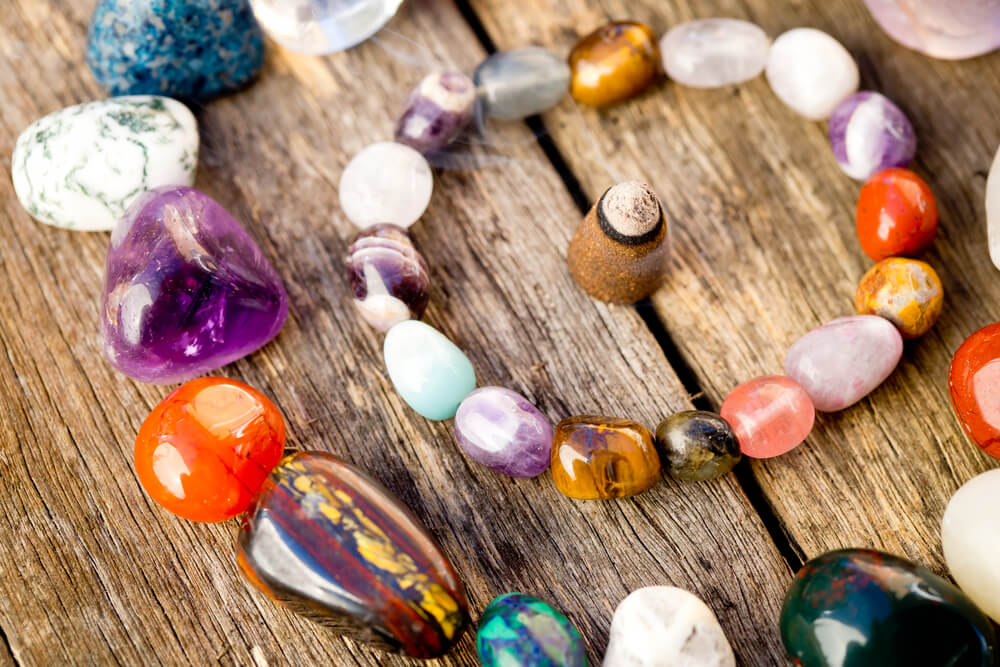Mythbuster: Healing crystals and essential oils

Introduction:
Essential oils, also known as volatile oils, are fragrant substances that are extracted under pressure or with steam from certain plants. Plants get their flavour and odour from natural compounds that are found in them. These oils are utilised in commonly found products like food flavourings and fragrances.
Additionally, they are utilised in aromatherapy, a therapeutic modality that employs essential oils to improve mental, emotional, and physical health. Aromatherapy and essential oils have been utilised for millennia, but only recently have they gained popularity as a kind of supplementary treatment.
Similarly, the usage of healing stones has increased. In areas of the body where the energy circulates called chakras, healers put crystals or stones that are said to provide various advantages such as digestive health or mental clarity.
According to supporters of energy healing, it's crucial to maintain your chakras open and your energy flowing freely. Otherwise, they could get obstructed and result in problems with the body or the mind.
Aromatherapy is used by some people to regulate their chakras. They adjust their body's energy centres and maintain harmony by using essential oils.
Essential oils and chakras:
According to some, some essential oils have various effects on each chakra and help balance the chakras. To access the knowledge held inside a chakra centre and to be able to direct highly particular energies toward one's personal development and healing, people utilise essential oils for chakras. Chakras are energy-spinning wheels and psychic centres that live in the spiritual realm rather than the physical one.
The frequencies in charge of generating human experience are determined by chakras.
By interacting with energy against our will, essential oils are said to help restructure old patterns in our chakras. Essential oils balance the chakras, bringing out the best qualities while balancing the dark sides.
Placebo effect:
Technically, the final judgement about crystals and essential oils has not yet been made. For instance, just a few studies have established clear connections between aromatherapy and healing. Even less research has been done on the therapeutic benefits of crystals.
However, anecdotal evidence suggests positive outcomes. Many patients vouch for these procedures, claiming that they improve their quality of life.
This is likely the result of the placebo effect when patients view aromatherapy and crystals as beneficial even if they have no physiological effect.
The placebo effect isn't always a terrible thing, though. Because there is no reason to not employ the use of healing crystals and essential oils if they do appear to be making you feel better.
The science behind healing crystals and essential oils:
In 2001, the University of London psychologist Christopher French conducted one of the few studies to examine crystal healing. He provided 80 volunteers pamphlets outlining the possible effects of holding crystals, such as tingling limbs, improved focus, and enhanced energy. Then he distributed real jewels to half the participants and fakes manufactured of cheap plastic to the other half. Both those holding the actual item as well as those clutching a fake were equally likely to react physically. French concluded that suggestion power, not flowing energy, was to be credited.
It's significant to highlight that there is little scientific evidence to support the health advantages of essential oils. According to 2011 research, using certain essential oils in addition to conventional treatment may help reduce tension and anxiety. Another research from 2012 on the advantages of essential oils for sleep discovered that inhaling lavender oil before bedtime improved sleep. But in a 2012 analysis of 201 papers, scientists said the evidence for aromatherapy was "not persuasive." Numerous people assert that essential oils have chakra-balancing properties despite the conflicting findings. As long as you take safety procedures, you may experiment on your own with little danger.
Conclusion:
Aromatherapy is being used in hospitals and medical facilities to replace the noxious disinfectant odours that can make patients anxious. Lavender, sage, neroli, chamomile, and clary are used in healthcare facilities to assist patients to unwind, de-stress, and maintain their composure.
Nevertheless, it's crucial to use caution while listening to others. When someone claims that crystals and oils may treat chronic medical ailments, be sceptical. Oils and crystals ought to be utilised as complementary medicine, which means they should be used in addition to standard medical care rather than in place of it because such claims have not been verified.






